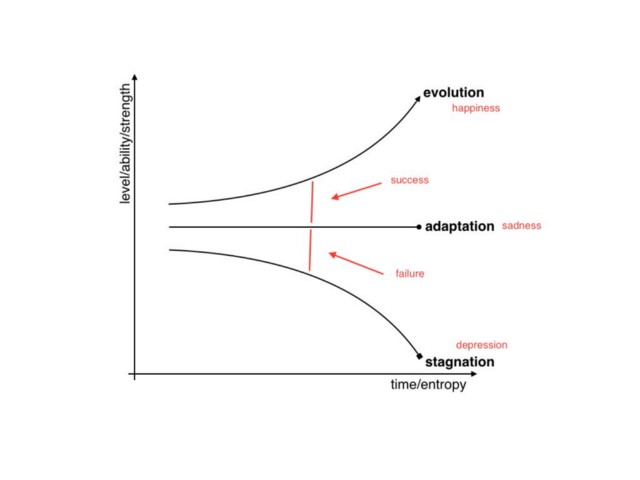Did you notice how we create complexity to solve complexity? I did, and then I wanted to delete everything.
Tabula rasa means blank slate. It is coming from the requirement of erasing by melting the layer of wax used to write things on back in the Roman days. In time it has transcended this mundane meaning into a full fledged philosophical concept. I am asking when to dive in it.
All systems decay because of increasing complexity.
Look at the world. Most of the problems we’re experiencing are because we kept adding layers or abstraction, special cases, dependencies, external assets and most likely other forms of complexity.
Complexity tends to increase because of constraint. Constraint acts as a factor of progress in the blank slate phase, or initial state. In the beginning, constraint harbors complexity-decreasing innovation. However, in later stages constraint creates exclusively complexity-increasing innovation: time constraints bring dependencies, resource constraints bring external assets, architectural constraints bring special cases and finally, the biggest barrier, human capacity of managing detail brings layers of abstraction.
All complex systems have a decay level inversely proportional to decoupling. That means we have fake complexity, a complexity which only appears to us because we don’t see the parts of the system, either because we don’t filter out information correctly or because our information is incomplete.

The opposite of complexity is not simplicity
A simple system solves a small problem. That is the biggest mistake we make in reducing complexity: simplifying systems. By introducing actions that increase simplicity, the system will by default not be able to solve the same problems. We’re tricked by ourselves because the system will be able to solve the same kind of problems, just not the same problems.
The generator of complexity is evolution. We’re constantly pushing systems to do more and we try to reuse as much as possible, because of constraints. So the system evolves. It appears as if it is getting better, flabbergasting us with the decline in effectiveness.
It is the same principle found in biology, and probably the main argument of evolution based atheism: if we were made from a blank slate there would have been better decisions in place. But we were not, we are features stacked on top of an ancient chassis.
Evolution granted us access to capacities far beyond the original design intended, but by doing that, the overall system decayed in a state of immense complexity: a psychological level of abstraction that is almost disconnected from the basic needs of survival (suicide), brain development added the huge dependency on others (immense social needs), our capacity of making tools brought in huge amounts of external assets in one’s life (extraction of resources from environment) and finally our self reflective natures that make our inner selves look like an endless spiral of nested special cases, a kind of expert system that is good at running only one single precise life, yours, not any other.
Use clarity
So what is the opposite of complexity then? Clarity. Clarity is the product of adaptation.
We are too afraid to start over. We repeat the “rewrite” mistake whenever we start over.The rewrite mistake is the bad assumption that a start over includes rebuilding what is already built. That’s why revolutions suck at solving social problems. When we rewrite the basic things we start by being the same flawed agents so we incorporate the same mistakes all over again in the new design. Plus, we loose all the countless iterations of progress and advancement which perfected regions of the system to crystal clarity.
Starting over implies a few steps:
- identify if the problem is that big in the first place so that it requires a system
- export processed and formatted data from the current system in all aspects defined in the problem
- open the current system in all places that affect the data it exports
- build the new system using data storage and processing from the old system
Old systems can be adapted almost endlessly and there is only one kind of event that makes adaptation impossible: cataclysmic events. There are two kinds of cataclysms: acute and chronic. Acute ones disrupt the world of the system so deep and hard that the problems it solved are no longer available. Chronic ones are pervasive and subversive, they steadily but relentlessly alter the nature of problems, so much that at some point the system solves irrelevant problems. The meteor that changed the climate which led to the dinosaurs going extinct is an acute cataclysmic event. Humans are a chronic cataclysm for ecosystems. New types of exclusively digital money is a chronic cataclysm for the banking industry. And so on. Only evolution solves cataclysmic events.
So, in short, tabula rasa should always mean, bring another tabula and leave the curent one as legible as possible.
small update
